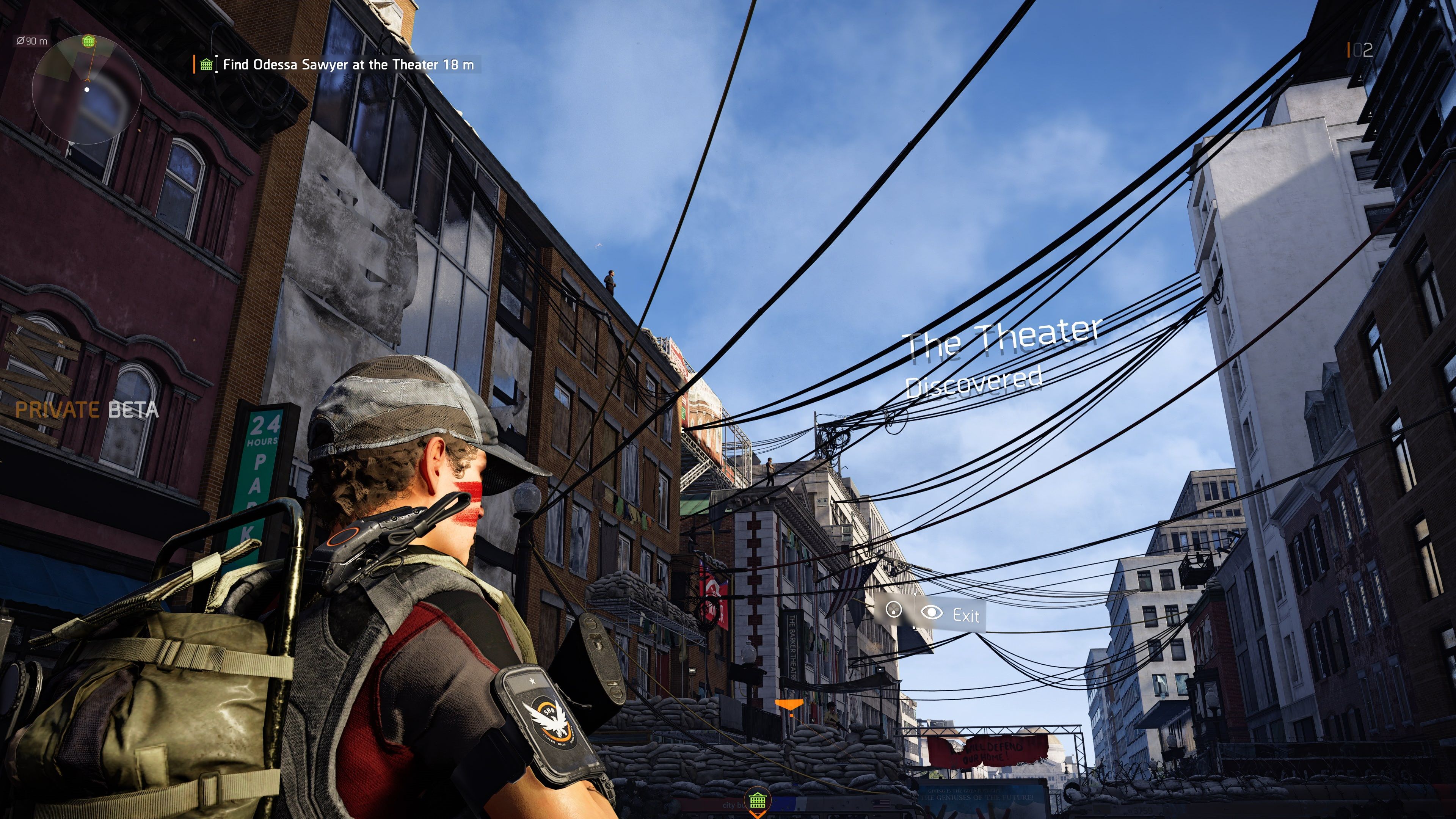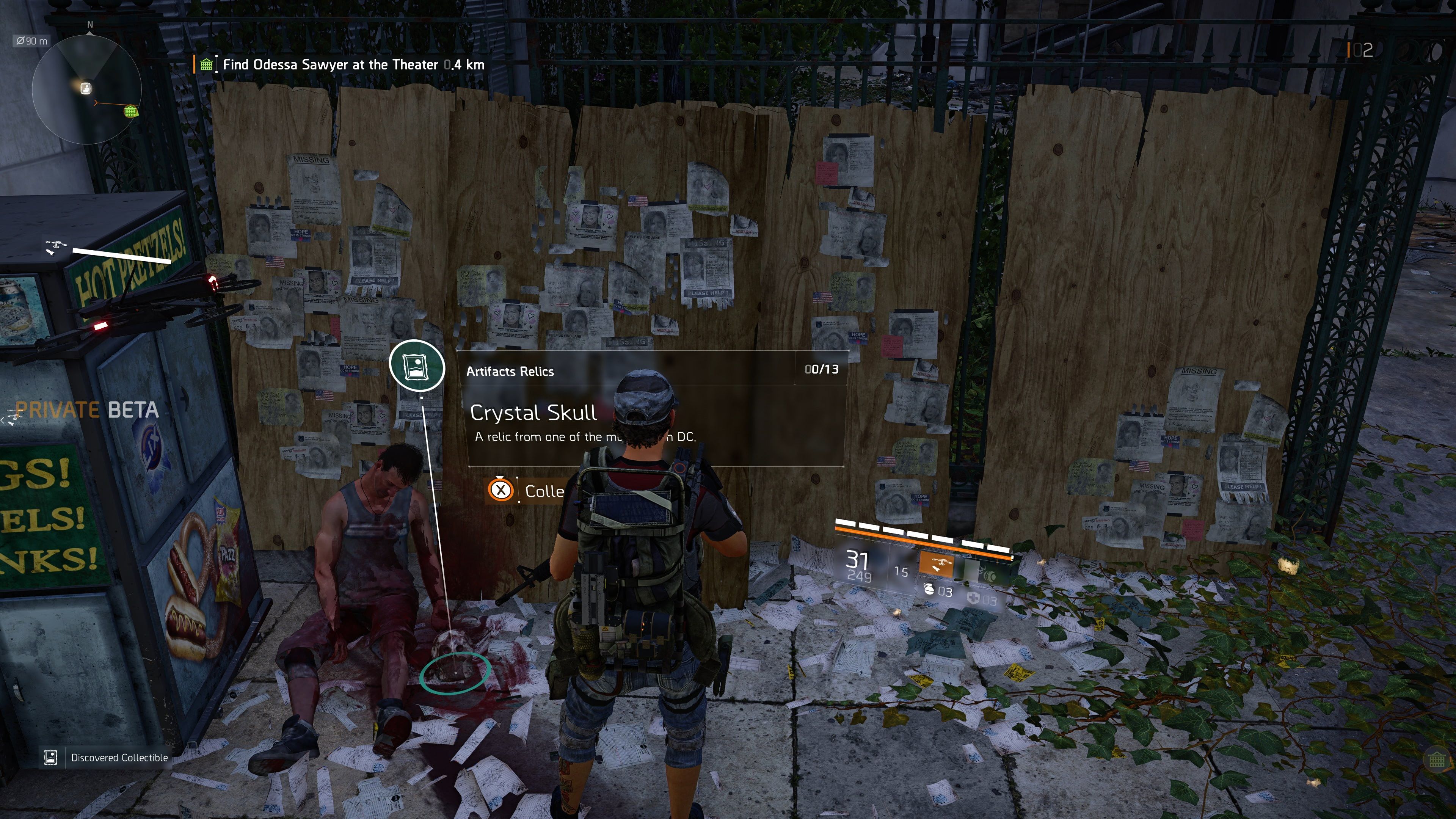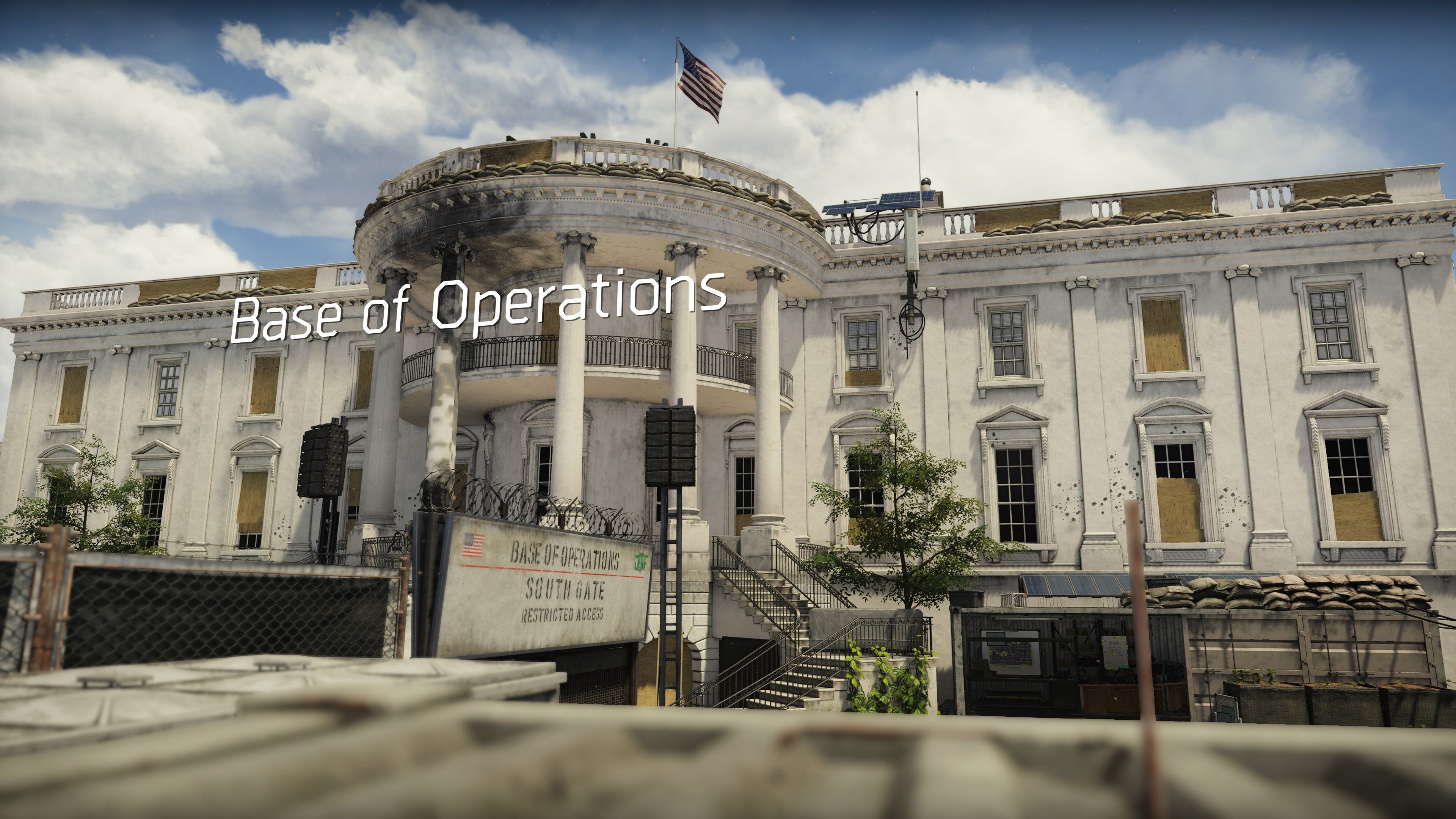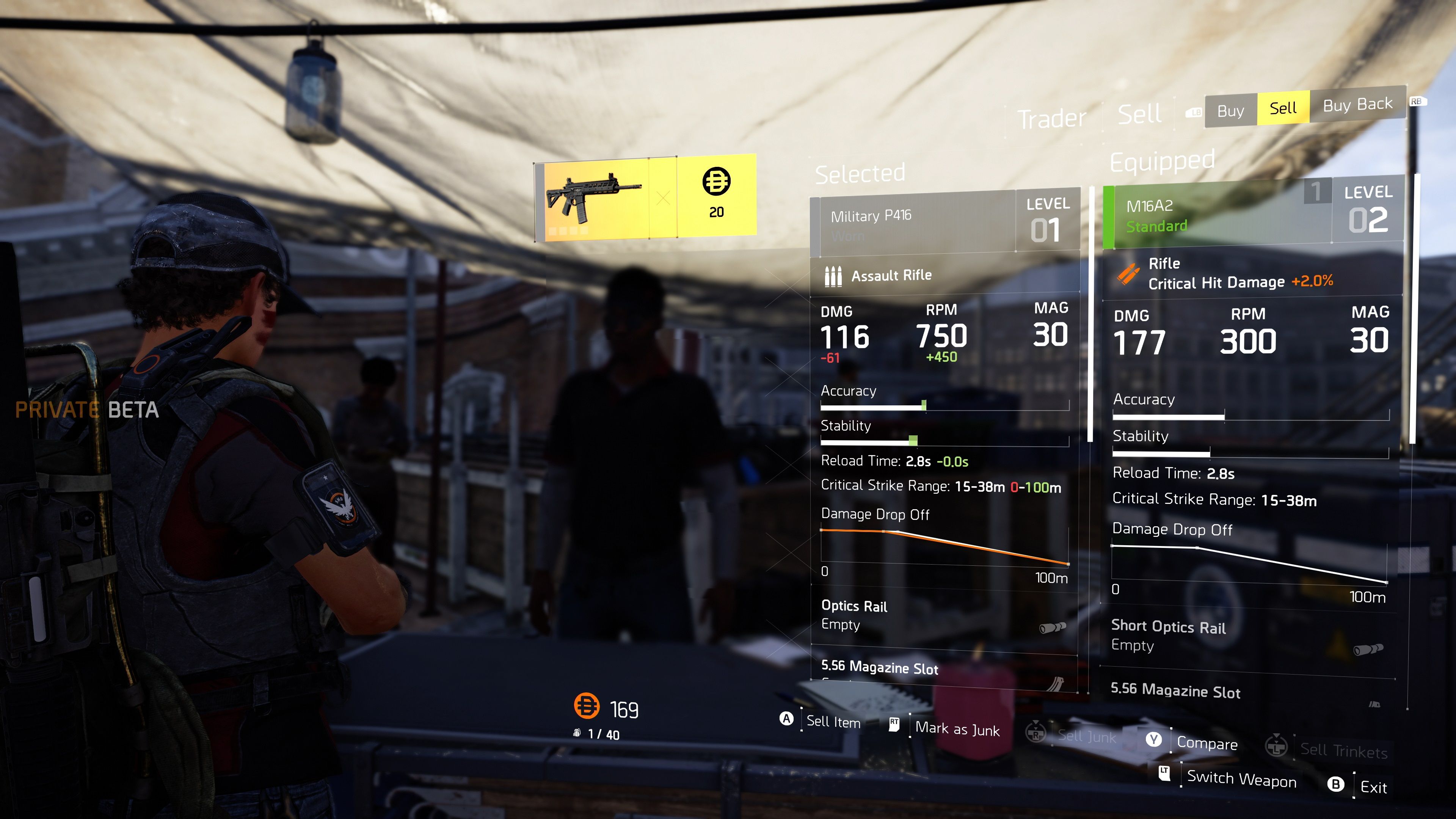During some hands-on time with Tom Clancy's The Division 2 I was able to speak with Red Storm Entertainment's Lead Gameplay Designer Keith Evans. I was able to ask about working with Ubisoft's worldwide studios and how it is to work with people who are living and working in extremely different time zones all over the world.
I was also curious about how they are balancing content in The Division 2 for the large player base and their different wants, since there are PvE, PvP, and a mix of both in the Dark Zones. We also touched a bit on the faction makeup, the greater focus on helping civilians this time around, as well as why so many video games like The Division 2 revolve around saving society from imminent collapse.
Steven: You are with Red Storm and your studio helped out with the first Division game as well, correct?
Keith Evans: Yeah. We have been on it throughout development of the first game and working on it through all three years post launch.
S: Are Ubisoft Reflections and Annecy helping out with The Division 2 again?
KE: Yes. That is what's so awesome about this because we're not only using the same tool set and making it better, but everyone who made the first game coming back to make the sequel with all the lessons learned and years of development. It is a rare gift to make the sequel with the entire original team. You have Reflections, you have Annecy, we have a team in Sofia, there's a lot of really talented devs around the world.
[pullquote]"We try to have a lot of autonomy for each team to make decisions and get to own their part of the game under the direction of Massive Entertainment in Sweden."[/pullquote]
S: How do you coordinate that? I know Ubisoft is very worldwide centered with all these studios all over the place, and you don't have to get into the nitty gritty, but how does that work coordinating with all these teams across different time zones?
KE: It comes down to a lot of trust, honestly, between all of us. We try to have a lot of autonomy for each team to make decisions and get to own their part of the game under the direction of Massive Entertainment in Sweden. Then there is basically us on the East Coast and we are in our own time zone from all the European studios. Our mornings are usually a lot of meetings and syncs and then we hit the ground running in the afternoon. It is about keeping that communication flow open and having a lot of trust.
S: Does Red Storm oversee a specific section of The Division 2, as there is PvE, PvP, and Dark Zone content?
KE: We have our hands in lots of things, primarily we have always been the PvP studio on The Division. We built the Dark Zone in the first game and we're building the three Dark Zones in this one. We're building Conflict, the organized PvP platform, then we also have our hand in a lot of RPG balance, art, all that type of stuff. It's a really good collaboration.
S: How do you balance satisfying each audience in The Division 2? There is a lot of intersection between people coming for PvE, that would be my main place, then also dipping into the Dark Zone every now and then because it is a very interesting setup where you have PvP but you can also avoid other people and not go rogue.
KE: It is different from a lot of other games. We have this huge community and this huge game and everyone has their thing they're most interested in. We have some players who play everything, we have some players who only play for the story, or only play missions, or someone who fell in love with one of the expansions in the first game. Then we had a huge amount of players who were crazy hardcore in the Dark Zone and spent a lot of hours grinding out perfect builds.
What we tried to do in the sequel is still cater to all those players but open the buffet of options for them a little bit more. Specifically in the Dark Zone we've done things like add a layer of normalization on player's builds. As you go into the Dark Zone now, the base experience has everyone at the same power level and now shooter skill matters a little bit more than, "Well, I have spent 4,000 hours grinding out this perfect min-max build," and we have also infused a lot more story.
All the Dark Zones in The Division 2 have their own missions that are PvE-focused and let you explore the space and help you understand what made this area go dark. For those really hardcore players, once they hit end game, end game was a really big focus for us the whole time, now you have a really lawless place for the Dark Zone where one is always un-normalized and we've stripped a lot of the feedback for who is rogue and who is friendly and it becomes the highest risk and highest reward in the game. We really try to widen the field for gamers for when they log on and decide what they want to do on any given night.
S: When you were approaching creating the factions for The Division 2, as far as PvE content, did you think about the first game and how the factions early on were more civilian focused with rioters, prisoners, and sanitation workers who were not your stereotypical enemy PMC? It was criticized by some because you were shooting random people who are trying to get by as well. Is something you thought about while creating the factions this time?
KE: We look at the factions to be very tied to the city. You look at what happened in New York, the factions that sprung up and most of them, especially the cleaners, they don't think they're really that bad. They think they're doing the right thing, they're being the hero of their own story. We have taken that and applied it to D.C. The factions are very much tied to this city. We have also heard the criticism of the bullet sponge, how it doesn't make sense to be shooting a human 8,000 times with a machine gun and all that.
We have not only evolved the combat to be more lethal, where everything has the correct impact and the gun feels like a gun, all those things. We have also adapted the AI so that you are not always just fighting civilians, it doesn't always feel like you're picking on the underdog. There's a more militaristic faction that is heavily armored and now you're helping civilians and that's where the settlements come in. They find routes in the open world now and they'll engage in combat and you can go assist them. We've tried to tip the balance.
S: Ubisoft has a very worldwide studio makeup, but a lot of their games seem to be centered on the US viewpoint as far as conflict. How do you think Massive, as a Swedish developer, approaches creating a game based in America and having an American viewpoint in The Division 2?
KE: When you look at the first game, it's Tom Clancy right? That takes you to a certain place, and you try to be really truthful to that clear and present danger scenario that all the classic Tom Clancy stories are based around. Then you put it in a city that everyone is familiar with, because a huge part of what we are doing is creating this type of scenario, this really disaster filled environment. We are creating incredibly 1:1 cities and we want you to explore areas that maybe you have seen on TV or seen in a travel show and now you get to fully explore them. That has led us to cities that are very iconic, like New York and D.C.
[pullquote]"Everyone wants to be the hero, and our game is all about that."[/pullquote]
S: Why do you think we are so obsessed with dystopias or trying to save society from collapse? It is something that not only Tom Clancy games do, a lot of games in general are about that. Do you think it is because it affords you to have the player be the ultimate hero? Or is there something else that we like about thinking about the potential of everything falling?
E: Everyone wants to be the hero, and our game is all about that. Especially in this one, it is all about seeing the impact of your choices on the world. Not just being the "video game hero" but actually making choices that impact other civilians and change the world around you, that let you be the center of the story. I think that it ties super well into the core gameplay we are trying to create with this really huge looter-shooter power climb and lets your impact on the world not just be about, "Oh, I got an extra piece of gear," but it is that gear and it is also that route in a really emotional story.
Surprising no one, The Division 2 developers are certainly working to appeal not only to those who enjoyed The Division and are looking for a substantial improvement, but also those who might have fallen off of the original for whatever reason. The narrative focus shift from running around a city fulfilling missions for voices on the radio to aiding settlements that are real locations you can visit and perform missions for is a great help to make the minute-to-minute more engaging, even if they remain characters you don't really interact with.
These help improve the peripheral content of the game, but the core remains a loot-shooter that many know whether or not they will find worthwhile. For those interested in Tom Clancy's The Division 2 you can pre-order your own copy via Amazon for PlayStation 4, Xbox One, and PC (via the Epic Games Store too) as we await its March 19, 2019 release date.




